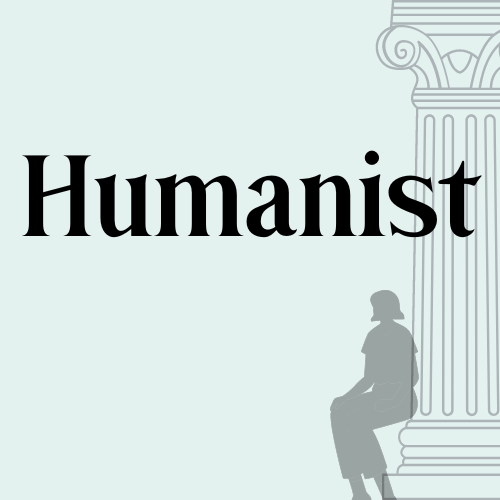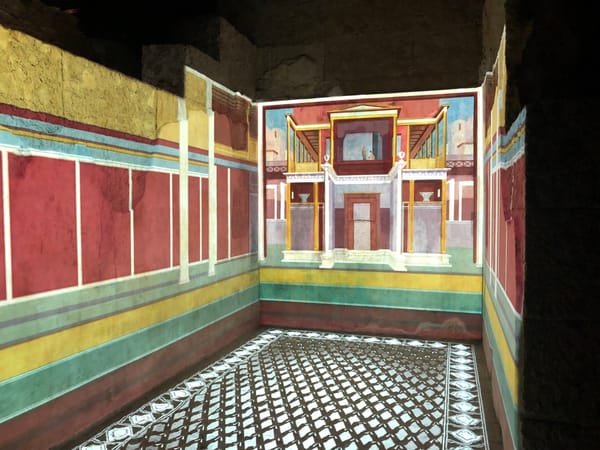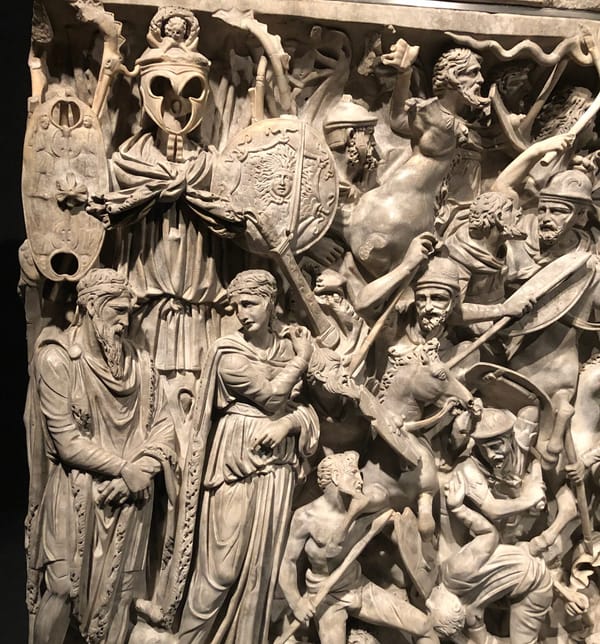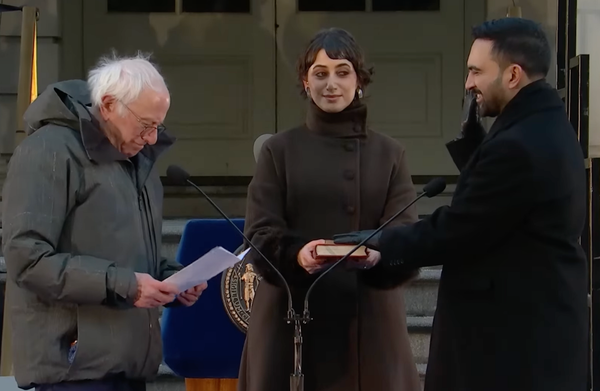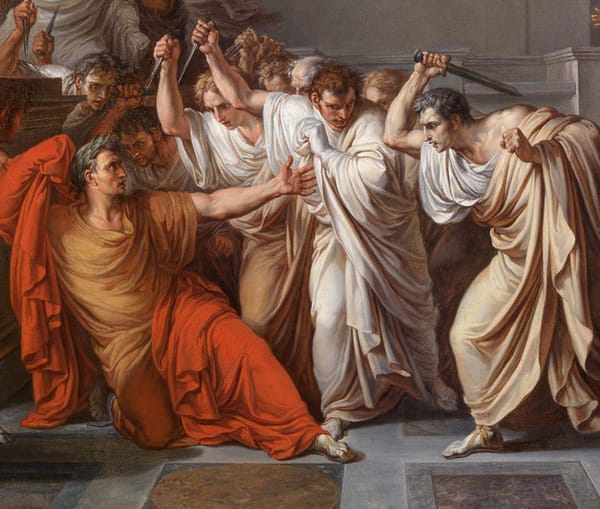Still radical after 100 years: John Dewey
Dewey was not just concerned with adapting education to meet the moment of the Industrial Revolution, but in realizing the democratic ideals of the United States.

In a field like classics, we cite lots of old books (100 years is nothing to us, and the early 1900s are considered modern). But in a field like education, new insights about neuroplasticity and tech tools are constantly changing the discipline. And yet John Dewey's work from the early 20th century isn't just cited as foundational in the history of education. He's still offering a guiding light for forward progress.
John Dewey taught in K12 for only 3 years before moving to higher ed, but his teaching experience informed a lifetime of work on the philosophy of education. He started a short-lived experimental K12 school at the University of Chicago with a laboratory, garden, music room, kitchen, and metal shop in place of traditional classrooms. He spent years visiting and lecturing in Russia and China in the early days of their Communist Revolutions (he had high hopes for how all that revolutionary energy would be channeled, most of them disappointed). And his most famous work, Democracy and Education (1916), articulates progressive values in education, responding directly to social change wrought by the Industrial Revolution.
Education and the Industrial Revolution
In 1900, Dewey published The School and Society, a set of three lectures about his experimental school in Chicago when it had been running for three years. He describes the paradigm shift that the school was attempting to effect: just as Copernicus introduced a paradigm of heliocentric astronomy, in Dewey's school "the child becomes the sun about which the appliances of education revolve; he is the center about which they are organized."
Children are naturally curious and full of questions – outside of school, at least. Dewey wanted to create an experience of education that would tap into that natural curiosity, and children's four innate interests: "the interest in conversation or communication; in inquiry, or finding out things; in making things, or construction; and in artistic expression." He talks about children learning to turn wool into woven fabric as an example: they could learn about cultural and historical weaving practices, the physics of spinning, and arithmetic to calculate yardage or costs while also making useful material. They would also learn the discipline that would enable them to persist until a task was done. The world outside the school would be the object of study; there would be no more separation between the "real world" or "real life" and the classroom.
All studies arise from aspects of the one earth and the one life lived upon it. We do not have a series of stratified earths, one of which is mathematical, another physical, another historical, and so on. We should not live very long in any one taken by itself. We live in a world where all sides are bound together. All studies grow out of relations in the one great common world. When the child lives in varied but concrete and active relationship to this common world, his studies are naturally unified. (School and Society)
Part of the reason that Dewey wanted education to look this way is that he was trying to compensate for an experience that he thought was lost during the Industrial Revolution. Children raised on a farm before the Industrial Revolution would naturally participate in the family's work and learn through experience with their families. This work was shared and mutually beneficial, so that learning had a very obvious social dimension and utility. Children were helping to make things to use immediately with a clear purpose, not preparing vaguely for "the future" or "adulthood." Children had a very personal stake and direct interest in learning about how things were made or where they came from – they could expect to use those things themselves – and could see things being made in their own households or communities.
In an industrialized world, you didn't have this direct window into where your food or clothing came from, and if you worked in a factory, you probably weren't making items to benefit your own family or community. Dewey wanted to recreate that social dimension and direct relationship with production in schools. But he also recognized that there were benefits to industrialization, mostly the exposure to a much wider world of human experience and culture.
Printing was invented; it was made commercial. Books, magazines, papers were multiplied and cheapened. As a result of the locomotive and telegraph, frequent, rapid, and cheap intercommunication by mails and electricity was called into being. Travel has been rendered easy; freedom of movement, with its accompanying exchange of ideas, indefinitely facilitated. The result has been an intellectual revolution. Learning has been put into circulation. While there still is, and probably always will be, a particular class having the special business of inquiry in hand, a distinctively learned class is henceforth out of the question. It is an anachronism. Knowledge is no longer an immobile solid; it has been liquefied. It is actively moving in all the currents of society itself. (School and Society)
Imagine what Dewey would have thought of the internet!
Knowledge wasn't shut up in medieval monasteries anymore, but Dewey thought that schools were still stuck in that old paradigm. In this paradigm, individuals hoard knowledge for themselves, competing with each other about who knows more, refusing to help each other learn because of this competitive impulse. Knowledge is also hoarded by the upper class, and their education consists of acquiring the system of symbols and social capital that typifies their class.
It would be hard to find anything in history more ironical than the educational practices which have identified the "humanities" exclusively with a knowledge of Greek and Latin. Greek and Roman art and institutions made such important contributions to our civilization that there should always be the amplest opportunities for making their acquaintance. But to regard them as par excellence the humane studies involves a deliberate neglect of the possibilities of the subject matter which is accessible in education to the masses, and tends to cultivate a narrow snobbery: that of a learned class whose insignia are the accidents of exclusive opportunity. Knowledge is humanistic in quality not because it is about human products in the past, but because of what it does in liberating human intelligence and human sympathy. Any subject matter which accomplishes this result is humane, and any subject matter which does not accomplish it is not even educational. (Democracy and Education)
Learning from experience
Instead, Dewey tried to create a school full of students who were making things, learning through activity and direct, tactile experience.
Some few years ago I was looking about the school supply stores in the city, trying to find desks and chairs which seemed thoroughly suitable from all points of view—artistic, hygienic, and educational—to the needs of the children. We had a good deal of difficulty in finding what we needed, and finally one dealer, more intelligent than the rest, made this remark: “I am afraid we have not what you want. You want something at which the children may work; these are all for listening.” That tells the story of the traditional education. (School and Society)
These students would engage in "recitations" to discuss and process what they learned through experience as well. Dewey's students would read, too, not to master knowledge for its own sake but in order to help them think more deeply about the historical context and meaning of the things they were doing. Reading about history was a way of extending their experience. Exploring the world around them wouldn't necessarily give students access to knowledge of the past, so through reading, students could learn how the world around them had taken shape. Dewey criticized approaches to teaching history that focused only on "great men," and encouraged teachers to explain social history, economic history, history told through material goods, and intellectual history that celebrated the world-changing power of creativity and inventions.
Social class and education
A lot of Dewey's thought about education has to do with breaking down the class barriers that were actively reinforced by traditional education. Education in a democracy, he thought, should not prepare the upper class to replicate cultural capital and the lower class to labor, but should prepare any student to "make one's way economically in the world, and to manage economic resources usefully instead of for mere display and luxury." He defines education, therefore, as "that reconstruction or reorganization of experience which adds to the meaning of experience, and which increases ability to direct the course of subsequent experience."
Skill obtained apart from thinking is not connected with any sense of the purposes for which it is to be used. It consequently leaves a man at the mercy of his routine habits and of the authoritative control of others, who know what they are about and who are not especially scrupulous as to their means of achievement. And information severed from thoughtful action is dead, a mind-crushing load. Since it simulates knowledge and thereby develops the poison of conceit, it is a most powerful obstacle to further growth in the grace of intelligence. The sole direct path to enduring improvement in the methods of instruction and learning consists in centering upon the conditions which exact, promote, and test thinking. Thinking is the method of intelligent learning, of learning that employs and rewards mind. (Democracy & Education)
Dewey quotes from Aristotle's Politics, which argues that mechanical skills used to earn wages are anti-intellectual as well as unbecoming of "free people," i.e. non-slaves. But Dewey corrects Aristotle: it's not the mere fact of engaging in manual labor or wage labor that's anti-intellectual, but engaging in it without intelligent reflection, self-determination, interest, or a sense of purpose. Education should prepare all people, whatever their social class is at birth and whatever their vocation will be, to find meaning in whatever they choose to do with their lives.
The invention of machines has extended the amount of leisure which is possible even while one is at work. It is a commonplace that the mastery of skill in the form of established habits frees the mind for a higher order of thinking. Something of the same kind is true of the introduction of mechanically automatic operations in industry. They may release the mind for thought upon other topics. But when we confine the education of those who work with their hands to a few years of schooling devoted for the most part to acquiring the use of rudimentary symbols at the expense of training in science, literature, and history, we fail to prepare the minds of workers to take advantage of this opportunity. More fundamental is the fact that the great majority of workers have no insight into the social aims of their pursuits and no direct personal interest in them. The results actually achieved are not the ends of their actions, but only of their employers. They do what they do, not freely and intelligently, but for the sake of the wage earned. It is this fact which makes the action illiberal, and which will make any education designed simply to give skill in such undertakings illiberal and immoral. The activity is not free because not freely participated in. (Democracy & Education)
Dewey is careful to distinguish between the experiential education he's calling for and narrow vocational or technical education which prepares students for specific careers. "A democratic criterion requires us to develop capacity to the point of competency to choose and make its own career. This principle is violated when the attempt is made to fit individuals in advance for definite industrial callings, selected not on the basis of trained original capacities, but on that of the wealth or social status of parents." A well-educated worker, if his job or vocation ceases to exist (a problem in 1916 as well as today!), will be able to reflect, adapt, and choose what to do next. The industrialist will find this worker more difficult to manipulate or use for his own ends, Dewey remarks, and this may account for some of the resistance he has encountered in setting up a new educational paradigm, but the end goal is a "more equitable and enlightened social order."
It is generally believed, for example, that slave labor was ultimately wasteful even from the purely economic point of view--that there was not sufficient stimulus to direct the energies of slaves, and that there was consequent wastage. Moreover, since slaves were confined to certain prescribed callings, much talent must have remained unavailable to the community, and hence there was a dead loss. Slavery only illustrates on an obvious scale what happens in some degree whenever an individual does not find himself in his work. And he cannot completely find himself when vocations are looked upon with contempt, and a conventional ideal of a culture which is essentially the same for all is maintained.
Dewey was not just concerned with adapting education to meet the moment of the Industrial Revolution, but in realizing the democratic ideals of the United States (in a way that some people have described as socialist or Communist, ironically).
Dewey's writing makes me even more curious about the Progressive Era as a historical moment we could learn from – automation and AI are changing our society now just as the Industrial Revolution changed society then, and parallels are often drawn between the level of wealth inequality in the Gilded Age and today's billionaire class. He was ready to re-design education from the ground up to meet the moment. It seems like the field of education is still catching up to his vision of a truly student-centered, equitable educational method. And the work of meaning-making and finding significance in whatever we do – at work or outside it – is still a crucial skill for living that AI hasn't learned yet.
Further reading
Peter Gibbon. (Spring 2019) "John Dewey: Portrait of a Progressive Thinker." HUMANITIES, Volume 40, Number 2.
